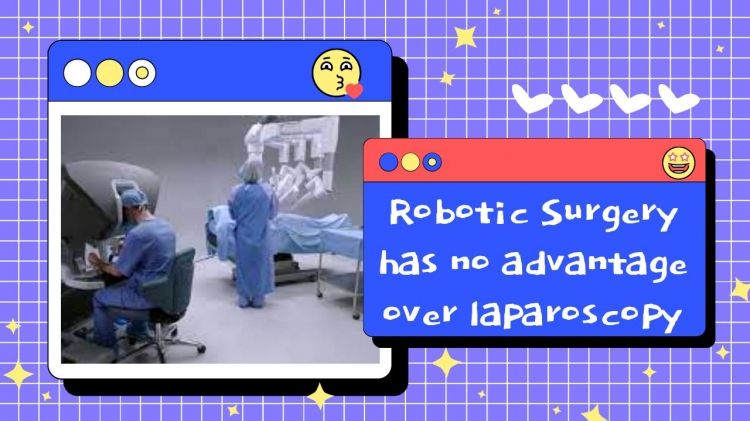Robotic abdominal surgery has become increasingly popular in recent years due to its potential advantages over traditional laparoscopic surgery, including improved visualization and dexterity. However, a recent meta-analysis suggests that robotic abdominal surgery may not offer significant advantages over laparoscopic surgery. This essay will explore the findings of the meta-analysis and the implications for surgical practice.
Meta-Analysis Findings
The meta-analysis, which was published in the Journal of the American Medical Association in 2019, analyzed the outcomes of over 23,000 patients who underwent abdominal surgery, including hysterectomy, prostatectomy, and colorectal surgery, using either robotic or laparoscopic techniques. The study found no significant difference in overall complications, mortality, or length of hospital stay between the two techniques. Additionally, the study found that robotic surgery was associated with significantly longer operating times and higher costs than laparoscopic surgery.
Implications for Surgical Practice
The findings of the meta-analysis have significant implications for surgical practice. While robotic abdominal surgery offers potential advantages over traditional laparoscopic surgery, such as improved visualization and dexterity, the study suggests that these advantages may not translate into improved outcomes for patients. Instead, the longer operating times and higher costs associated with robotic surgery may outweigh any potential benefits.
The study underscores the importance of evaluating the efficacy and safety of new surgical techniques and technologies before widespread adoption. Surgeons and healthcare providers must carefully consider the potential benefits and risks of new techniques and technologies and balance these factors against patient outcomes and cost.
Robotic abdominal surgery may still be appropriate for some patients, particularly those with complex surgical needs or those who are not good candidates for traditional laparoscopic surgery. However, the study suggests that robotic surgery should not be considered the default choice for abdominal surgery and that laparoscopic surgery may still be the preferred technique in many cases.
The findings of the meta-analysis also raise questions about the role of industry in the development and promotion of new surgical technologies. Robotic abdominal surgery has been heavily marketed by industry as a new and innovative technique that offers significant advantages over traditional laparoscopic surgery. However, the study suggests that these claims may be overblown and that more careful evaluation is needed before widespread adoption of new technologies.
The role of industry in surgical practice has been a topic of debate in recent years, with concerns raised about the potential for conflicts of interest and biased research. Surgeons and healthcare providers must be vigilant about the role of industry in the development and promotion of new technologies, and carefully evaluate the evidence base for new techniques and technologies before recommending them to patients.
The meta-analysis also highlights the importance of patient-centered care in surgical practice. While new techniques and technologies may offer potential benefits for patients, the ultimate goal of surgery is to improve patient outcomes and quality of life. Surgeons and healthcare providers must prioritize patient-centered care and carefully evaluate the potential benefits and risks of new techniques and technologies in the context of each individual patient's needs and circumstances.
Future research is needed to further evaluate the efficacy and safety of robotic abdominal surgery and to identify the patients who are most likely to benefit from this technique. It is possible that future advancements in technology and surgical techniques may improve the outcomes associated with robotic surgery and make it a more viable option for patients. However, until more evidence is available, surgeons and healthcare providers must exercise caution and carefully consider the potential benefits and risks of robotic abdominal surgery for each individual patient.
Conclusion
The recent meta-analysis suggests that robotic abdominal surgery may not offer significant advantages over laparoscopic surgery and may be associated with longer operating times and higher costs. Surgeons and healthcare providers must carefully evaluate the potential benefits and risks of new surgical techniques and technologies and prioritize patient-centered care. The study underscores the importance of evidence-based medicine in surgical practice and the need for continued research and evaluation of new techniques and technologies. As the field of surgery continues to evolve, it is essential that surgeons and healthcare providers remain vigilant and prioritize the needs and outcomes of their patients


